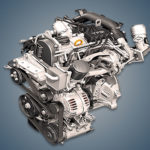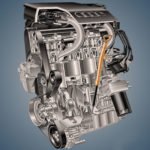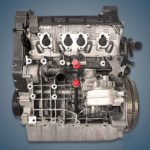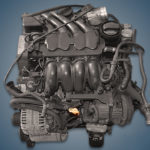The 1.4-liter turbocharged Volkswagen CXSA 1.4 TSI engine was assembled from 2013 to 2014 and was installed only on the seventh generation Golf and similar Audi A3 and Seat Leon. This power unit is a corrected version of the CMBA engine with a different cylinder head.
The EA211 series includes: CWVA, CWVB, CJZA, CJZB, CHPA, CMBA, CXSA, CZCA, CZDA, CZEA, DJKA, DACA, DADA.
Specifications
| Production years | 2013-2014 |
| Displacement, cc | 1395 |
| Fuel system | direct injection |
| Power output, hp | 122 |
| Torque output, Nm | 200 |
| Cylinder block | aluminum R4 |
| Block head | aluminum 16v |
| Cylinder bore, mm | 74.5 |
| Piston stroke, mm | 80 |
| Compression ratio | 10.5 |
| Features | DOHC |
| Hydraulic lifters | yes |
| Timing drive | belt |
| Phase regulator | on the intake shaft |
| Turbocharging | TD025 M2 |
| Recommended engine oil | 5W-30 |
| Engine oil capacity, liter | 3.8 |
| Fuel type | petrol |
| Euro standards | EURO 5 |
| Fuel consumption, L/100 km (for VW Golf 2014) — city — highway — combined |
6.6 4.3 5.2 |
| Engine lifespan, km | ~260 000 |
| Weight, kg | 106 |
The engine was installed on:
- Audi A3 3 (8V) in 2013 – 2014;
- Seat Leon 3 (5F) in 2013 – 2014;
- Volkswagen Golf 7 (5G) in 2013 – 2014.
Disadvantages of the VW CXSA engine
- The vast majority of owners’ complaints are somehow related to the oil burner;
- Also, service stations are often contacted because of the thrust wedge of the turbine wastegate actuator;
- Expensive plastic pump with two thermostats often leaks to 100,000 km;
- Another disadvantage is a long warm-up and extraneous noises and knocks;
- According to the regulations, the timing belt is checked every 60,000 km, changed every 120,000 km.






